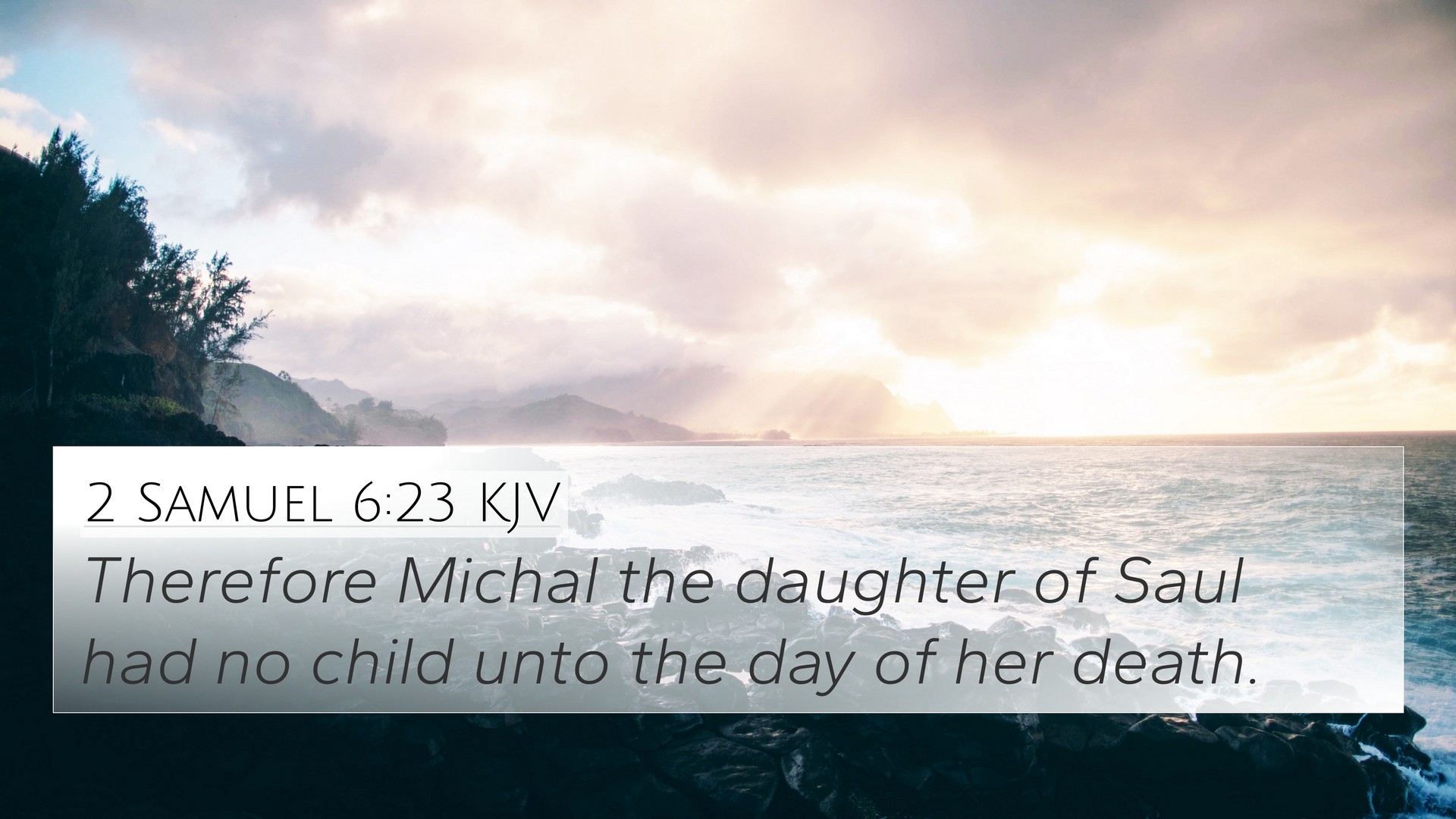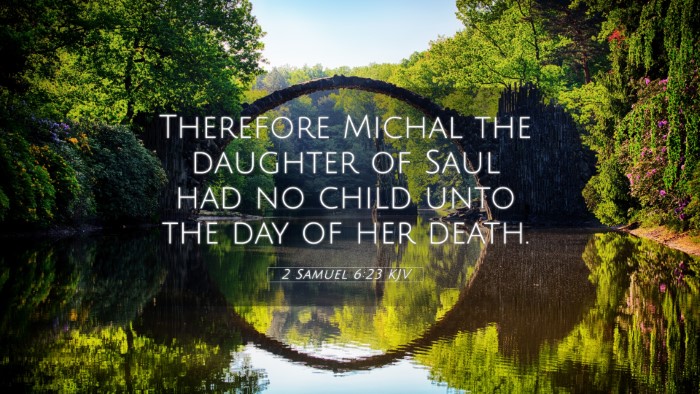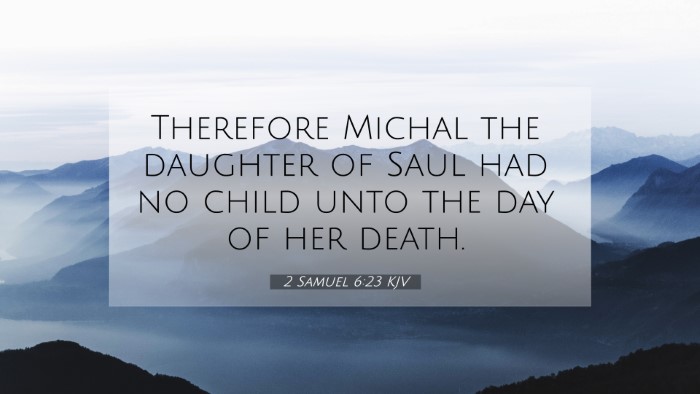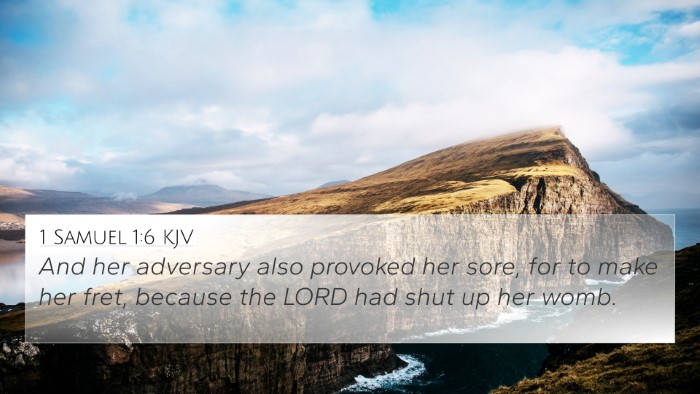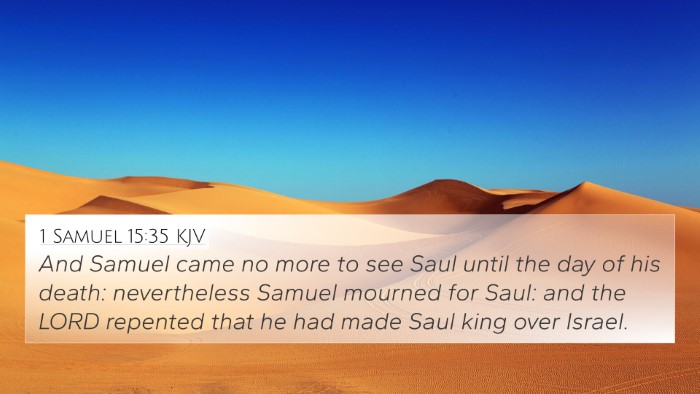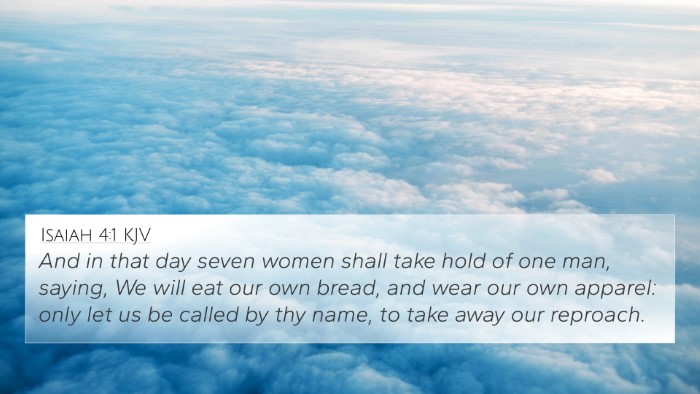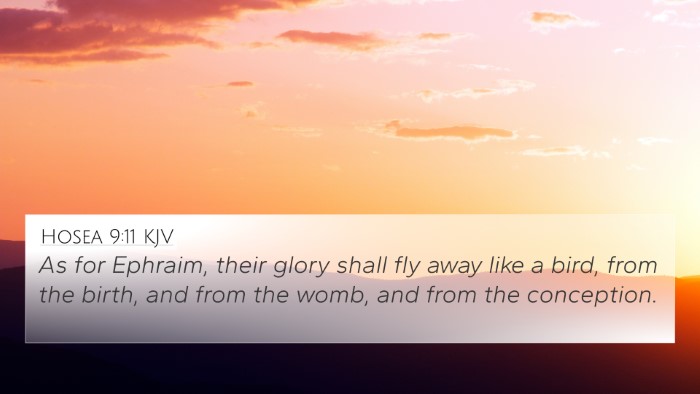Understanding 2 Samuel 6:23
The verse 2 Samuel 6:23 states: “And Michal the daughter of Saul had no child unto the day of her death.” This verse gives us insight into the life of Michal, the daughter of King Saul, and touches upon themes of relationships, fulfillment, and God's providential will.
Summary of 2 Samuel 6:23
In this passage, we learn that Michal, despite her royal status and previous love for David, remained childless until her death. This detail serves a vital purpose within the narrative, showcasing the consequences of her actions and the dynamics present in her marriage to David.
Commentary Insights
-
Matthew Henry's Commentary:
Henry emphasizes the implications of Michal’s barrenness, suggesting it represents a divine judgment. Once she despised David’s public worship of God, she fell from grace in God’s eyes, which manifested in her inability to bear children. This serves as a cautionary tale about the consequences of disdain towards true worship.
-
Albert Barnes' Notes:
Barnes connects Michal’s situation to her father Saul's legacy. He notes that she rejected David’s expressions of joy, leading to a rupture in their relationship. Her lack of children indicates a curse or misalignment with God’s design, symbolizing a deeper spiritual barrenness resulting from her choices.
-
Adam Clarke's Commentary:
Clarke provides insight into the cultural nuances surrounding childbearing, especially for women of Michal's status. He points out that in Israelite culture, being childless could lead to a woman's significant social vulnerability. Michal’s story is thus portrayed as not only personal but communal, highlighting societal expectations about motherhood and legacy.
Thematic Connections
The story of Michal intersects with various other Biblical themes and passages. Here are some relevant connections:
- Galatians 6:7: “For whatever a man sows, that he will also reap.” The theme of consequences for actions resonates with Michal's situation.
- 1 Samuel 15:23: “For rebellion is as the sin of witchcraft.” Michal’s actions demonstrate the dangers of rebelling against God’s anointing.
- Psalm 127:3: “Children are a heritage from the Lord...” This highlights the blessedness of children, which Michal lacked.
- Proverbs 30:21-22: Discusses burdens of a woman without children, illuminating Michal’s silent suffering.
- 2 Samuel 6:20: David's response to Michal’s criticism serves as the precursor to her eventual barrenness.
- Hosea 9:14: Refers to God withholding blessings, akin to Michal’s state.
- Luke 1:7: The narrative on Elizabeth's barrenness reflects God's purposes, similar to Michal's story.
Cross-Referencing Biblical Texts
Understanding the connections between these verses helps to illuminate the overarching themes of divine judgment, grace, and the complexities of human relationships. Cross-referencing allow us to delve deeper into the intended messages and broader implications of specific scriptures, such as 2 Samuel 6:23.
Tools for Bible Cross-Referencing
To explore these connections further, one may utilize tools for Bible cross-referencing such as comprehensive Bible concordances, cross-reference guides, and specialized study materials. Engaging in cross-referencing Bible study methods not only enhances understanding but also enriches one’s spiritual journey through detailed analysis and thematic exploration.
Conclusion
The verse 2 Samuel 6:23 serves as a poignant reminder of the complexities of our actions and the significant impact they can have on our lives and relationships. Through the examination of Michal’s story and its connections to other scriptures, we learn valuable lessons about obedience, worship, and the enduring grace of God amidst human failures.
As we engage with the Bible’s teachings, understanding the thematic connections between verses can nurture our faith and enhance our Biblical literacy, illuminating the paths through which God's word continues to resonate in our lives today.
